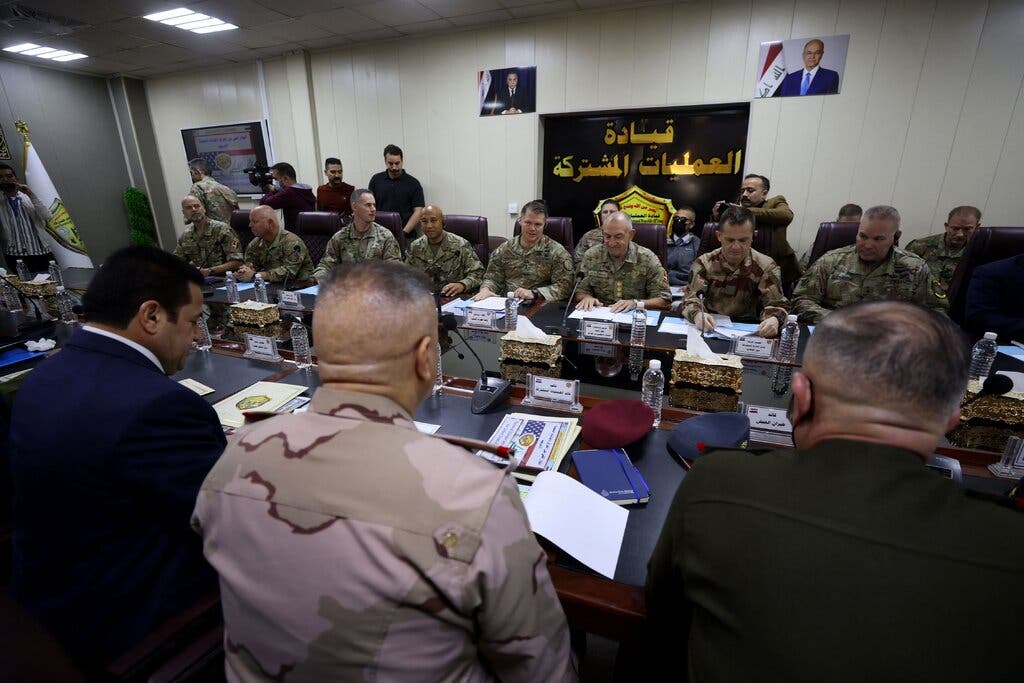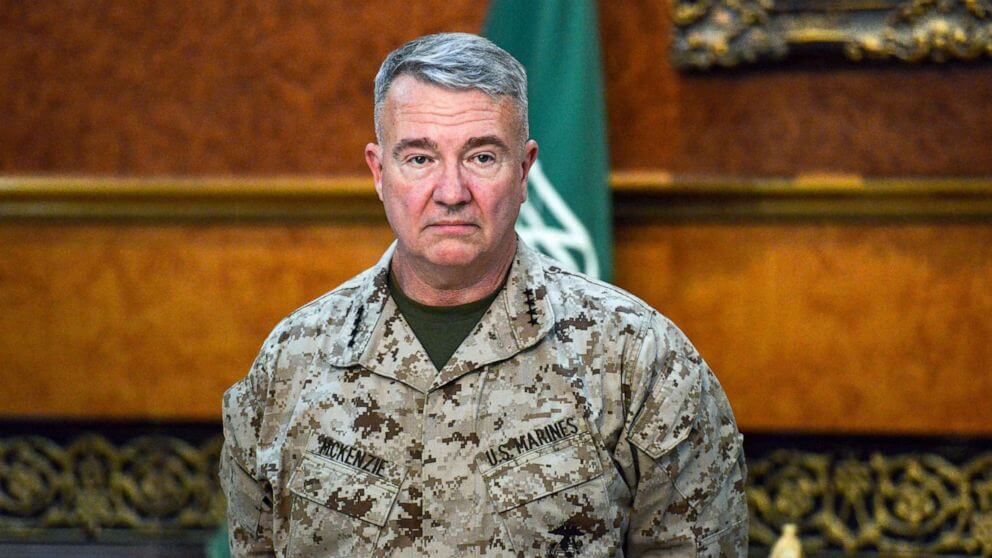United States Central Command (CENTCOM) chief Gen. Frank McKenzie on Thursday told the Associated Press (AP) that the US will keep its troops in Iraq, despite a separate announcement made by American and Iraqi officials earlier on the same day that the US-led coalition will end its combat mission in the country.
On Thursday, US, Iraqi, and coalition officials announced that the ‘Global Coalition to Defeat ISIS,’ has ended its combat role and will work with Iraqi security forces in an advisory capacity. “As we complete our combat role, we will remain here to advise, assist, and enable the ISF [Iraqi security forces],” Coalition commander Maj. Gen. John Brennan said, adding that the advisory role would only be fulfilled at the “invitation of the Republic of Iraq.”
However, McKenzie claimed otherwise, saying that the US will maintain troop presence, provide air support, and other military aid for Iraq’s armed forces. He noted that if the Coalition forces leave Iraq, the country will be destabilised by violent non-state actors like the Islamic State and Iran-backed Shia militias.
“They actually want all US forces to leave, and all US forces are not going to leave,” McKenzie said referring to the Iran-backed militias. He added that the militias “may provoke a response” soon if US troops do not leave Iraq.
Referring to last month’s assassination attempt on Iraqi Prime Minister (PM) Mustafa al-Kadhimi by Shia militias, the US General said that “an attack to kill the PM is a pretty significant event” and is a “signpost of the desperation” the groups are under right now. The October parliamentary election dealt a severe blow to pro-Iranian parties, who won only 16 seats, significantly lower than the 48 seats it captured in the previous election. Since then, they have rejected the election results and resorted to violence against the Iraqi government.

McKenzie also noted that the rise in IS activities in the country is also a reason why American troops should stay in Iraq. If Coalition forces leave the country, IS “will keep recreating itself, perhaps under a different name,” he argued. The General added that the US-led forces have the capacity to ensure that IS does not become stronger.
Recently, there has been a surge in IS attacks on Iraqi security forces and Kurdish Peshmerga fighters. Over the past few weeks, IS attacks have killed 22 Peshmerga fighters and two Iraqi soldiers in attacks mostly concentrated on Iraq’s Kurdish north, in the Erbil and Diyala provinces.
Against this backdrop, McKenzie claimed that Iraq still prefers the presence of the Coalition. “We’ve drawn down from bases we didn’t need; we’ve made it harder to get at us. But the Iraqis still want us to be there. They still want the presence, they still want the engagement,” he added.
However, not everyone in Iraq seems to agree with McKenzie’s reasoning. Muqtada al-Sadr, the Shia cleric who won the parliamentary election, has fiercely opposed the presence of foreign troops in Iraq and has been vocal about US troops leaving Iraq. In his victory speech in October, Sadr announced a government free from foreign interference and warned of a “popular response” if foreign troops remain in Iraq. Similarly, in July, PM Kadhimi said that there was “no need for any foreign combat forces on Iraqi soil” and that Iraqi forces are prepared to deal with any security threat.

